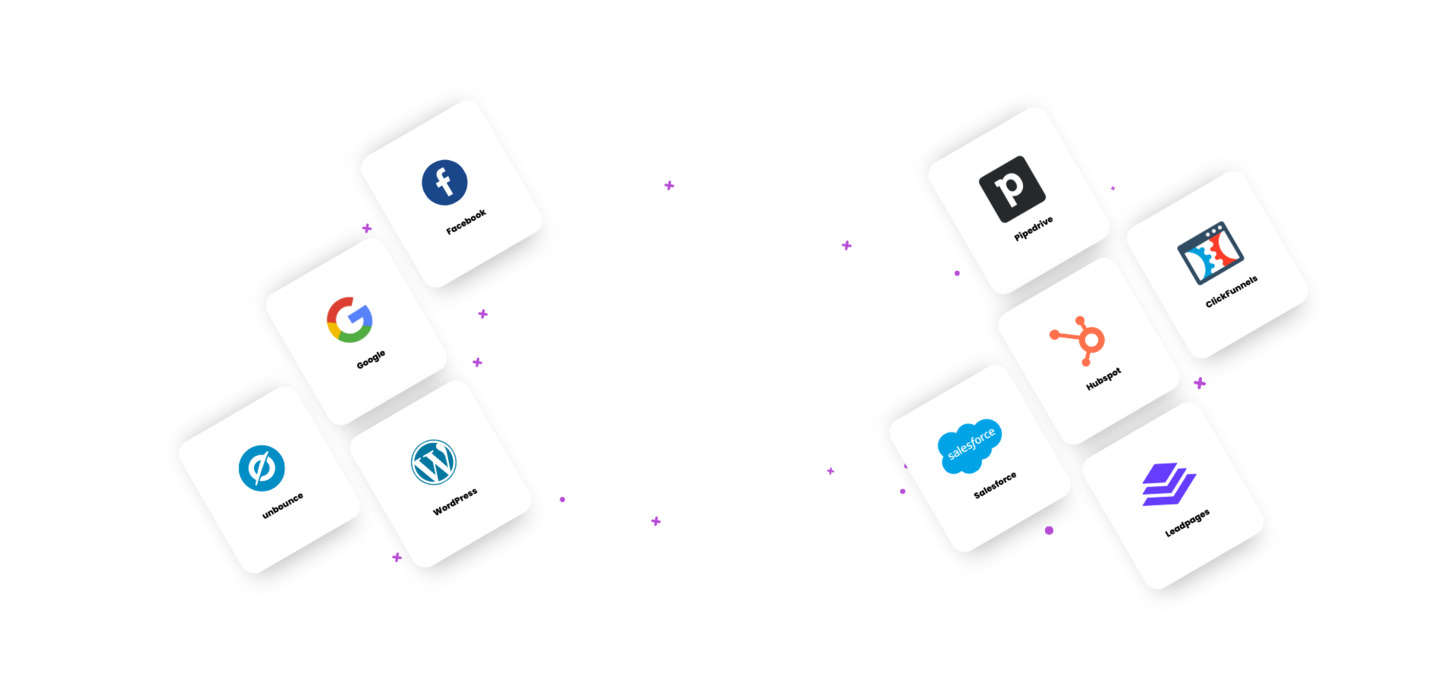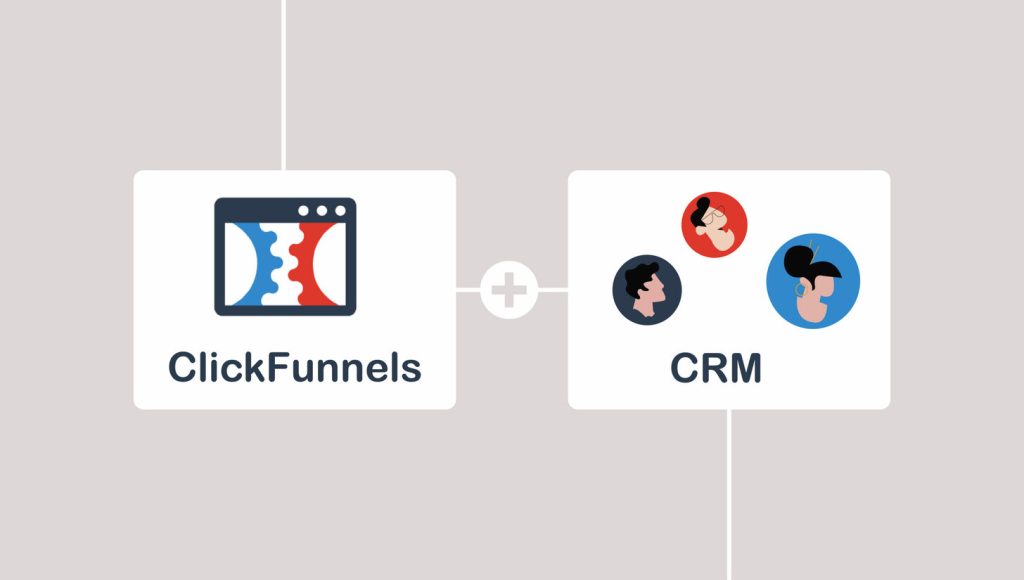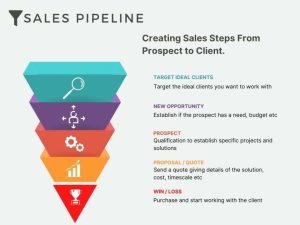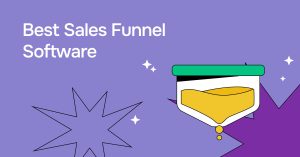Existing customer? Sign in
Salesforce vs HubSpot vs ClickFunnels: Choosing the Best CRM Tool

In today’s digital age, customer relationship management (CRM, Salesforce vs HubSpot vs ClickFunnels) tools have become crucial for businesses to effectively manage and nurture their customer relationships. With the wide range of options available in the market, it can be challenging to decide which CRM tool is the best fit for your business needs. Three popular CRM tools that often come up in the conversation are Salesforce, HubSpot, and ClickFunnels. Each tool boasts its unique features and advantages, making the decision-making process even more daunting. In this article, we will compare Salesforce vs HubSpot vs ClickFunnels to help you make an informed decision about which CRM tool is the best fit for your business. So, let’s dive in and explore the features, benefits, and limitations of each tool to see how they measure up in the competitive CRM landscape.
Understanding the Basics of Salesforce vs HubSpot vs ClickFunnels
When it comes to managing customer relationships and optimizing sales processes, three popular platforms that come to mind are Salesforce, HubSpot, and ClickFunnels. Each of these tools offers unique features and benefits, making them suitable for different business needs. In this article, we will delve into the basics of Salesforce, HubSpot, and ClickFunnels to help you understand their differences and determine which one is the best fit for your organization.
Salesforce is a comprehensive customer relationship management (CRM) platform that allows businesses to efficiently manage their sales, marketing, and service processes. It offers a wide range of functionalities, including lead and opportunity management, email marketing, and analytics. Salesforce is known for its robust reporting and customization options, making it a popular choice among large enterprises. However, its extensive feature set might be overwhelming for smaller businesses or those who are just starting to adopt a CRM system.
On the other hand, HubSpot is an all-in-one inbound marketing and CRM platform that caters to businesses of all sizes. It offers a user-friendly interface and a variety of tools, including email marketing, social media management, and customer support. HubSpot’s free CRM is particularly attractive for small businesses with limited budgets. It also provides various integrations with other platforms, allowing for seamless data transfer and campaign management.
Lastly, ClickFunnels is a specialized platform that focuses on creating effective sales funnels. Unlike Salesforce and HubSpot, ClickFunnels is designed specifically for businesses that rely heavily on online sales and lead generation. Its intuitive drag-and-drop editor allows users to build landing pages, sales pages, and order forms with ease. ClickFunnels also offers features such as A/B testing and email automation to optimize conversion rates.
In conclusion, Salesforce, HubSpot, and ClickFunnels offer distinct features and cater to different business needs. Salesforce is suitable for large enterprises looking for a comprehensive CRM platform, while HubSpot is more beginner-friendly and budget-friendly for businesses of all sizes. ClickFunnels, on the other hand, is the go-to option for businesses seeking to optimize their online sales funnels. By understanding the basics of these tools, you can make an informed decision and select the one that aligns best with your organization’s goals and requirements.
Click here and Learn more
Features Comparison: Salesforce vs HubSpot vs ClickFunnels
When it comes to choosing the right software for your business, the options can be overwhelming. Salesforce, HubSpot, and ClickFunnels are three popular platforms that offer a range of features to help businesses streamline their sales and marketing processes. In this article, we will compare the features of these three platforms to help you make an informed decision.
Salesforce is a powerful CRM platform that offers a wide range of features designed to help businesses manage their customer relationships effectively. It offers a robust set of tools for sales, marketing, and customer service. With Salesforce, you can track leads, manage accounts and contacts, and automate sales and marketing processes. It also offers advanced reporting and analytics capabilities, allowing you to gain valuable insights into your sales and marketing efforts.
HubSpot, on the other hand, is an all-in-one marketing and sales platform. It offers a suite of tools for lead generation, email marketing, social media management, and customer relationship management. HubSpot’s CRM is user-friendly and offers features like contact management, deal tracking, and task management. It also offers a range of integrations that allow you to connect with other tools and platforms seamlessly.
ClickFunnels is a sales funnel builder that helps businesses create and optimize sales funnels. It offers a range of templates and drag-and-drop functionality, making it easy to build and customize your funnels. ClickFunnels also offers features like A/B testing, email marketing automation, and payment gateway integration. It’s a great option if you’re looking to build high-converting sales funnels without any coding or design skills.
In conclusion, Salesforce, HubSpot, and ClickFunnels are all powerful platforms that offer a range of features to help businesses streamline their sales and marketing processes. The right platform for you will depend on your specific needs and business goals. Salesforce is ideal for large enterprises looking for advanced CRM and analytics capabilities, while HubSpot is a great choice for small to mid-sized businesses looking for an all-in-one marketing and sales solution. ClickFunnels, on the other hand, is perfect for businesses looking to create and optimize sales funnels easily. Evaluate your requirements, compare the features, and choose the platform that best fits your business needs.
Click here and Learn more
Pricing Plans Breakdown: Salesforce vs HubSpot vs ClickFunnels
Click here and Learn more
When it comes to choosing the right pricing plan for your business, it can be overwhelming to evaluate the options available. Salesforce, HubSpot, and ClickFunnels are three popular marketing automation platforms that offer a range of features and plans to suit different business needs. In this breakdown, we will compare the pricing plans of Salesforce, HubSpot, and ClickFunnels to help you make an informed decision.
Salesforce offers a variety of pricing plans that cater to businesses of all sizes. Their Essentials plan starts at $25 per user per month and is ideal for small businesses. As you scale up, their Professional and Enterprise plans offer more advanced features and increased customization options. However, Salesforce’s pricing can be on the higher end compared to the other two platforms.
HubSpot, on the other hand, provides a freemium model, making it an attractive option for small businesses. Their free plan includes features like email marketing and Salesforce integration. For more advanced features, HubSpot offers three paid plans: Starter, Professional, and Enterprise. The paid plans start at $50 per month and increase based on the number of contacts and features required.
ClickFunnels is known for its pricing simplicity. They offer two main plans: the Basic plan, priced at $97 per month, and the Platinum plan, priced at $297 per month. Both plans include features like sales funnels, landing pages, and email marketing, making it a cost-effective solution for businesses looking to generate leads and increase conversions.
When comparing Salesforce, HubSpot, and ClickFunnels, it’s essential to consider your business needs, budget, and the features that are most important to you. Salesforce is known for its robust customization options, while HubSpot’s freemium model can be appealing to small businesses. ClickFunnels, with its sales funnel focus, is a great option for businesses looking to optimize their lead-generation processes. By carefully evaluating these platforms’ pricing plans, you can choose the one that aligns best with your business goals and budget.
Integrations and Customization Options
In today’s digital age, it’s crucial for businesses to have seamless integrations and customization options to effectively manage their operations. With various platforms to choose from, such as Salesforce, HubSpot, and ClickFunnels, finding the right solution that aligns with your business needs can be a challenging task.
When it comes to integrations, Salesforce offers a comprehensive ecosystem that seamlessly connects with other platforms and tools. Its extensive range of APIs and AppExchange marketplace make it easier for businesses to integrate different systems and automate processes. HubSpot, on the other hand, provides a user-friendly CRM with built-in integrations for popular tools and platforms. It offers a unified platform for marketing, sales, and customer service, ensuring that all departments are seamlessly connected.
In terms of customization options, Salesforce provides unmatched flexibility to tailor the platform according to your business requirements. Its extensive customization features and workflows allow businesses to create personalized experiences for their customers. HubSpot, while not as customizable as Salesforce, offers a range of tools and templates to create visually appealing landing pages, emails, and web pages. ClickFunnels specializes in customization options for building sales funnels and landing pages, allowing businesses to create optimized experiences for their leads and prospects.
Ultimately, the choice between Salesforce, HubSpot, and ClickFunnels depends on the specific needs and goals of your business. If you require extensive integrations and customization capabilities, Salesforce might be the ideal choice. However, if you’re looking for an all-in-one platform with user-friendly customization options, HubSpot can be a great fit. Meanwhile, if you prioritize creating optimized sales funnels and landing pages, ClickFunnels may be the solution for you. Weighing the pros and cons of each platform will help you make an informed decision to streamline your business operations and drive growth.
Click here and Learn more
User Interface and Ease of Use Comparison
User Interface and Ease of Use Comparison
When it comes to managing customer relationships and driving sales, having a user-friendly interface is crucial. In this article, we will compare the user interfaces and ease of use of three popular CRM software: Salesforce, HubSpot, and ClickFunnels.
First, let’s discuss Salesforce. Known for its extensive features and customization options, Salesforce offers a robust user interface. However, some users may find it overwhelming due to its complex layout and numerous menus. The onboarding process can be time-consuming for new users who are not familiar with the platform. Nevertheless, once users become accustomed to Salesforce, its powerful capabilities can significantly enhance their sales and marketing efforts.
On the other hand, HubSpot stands out for its intuitive and user-friendly interface. With a clean and modern design, HubSpot allows users to navigate effortlessly and complete tasks quickly. The platform provides helpful tutorials and resources for new users, making the onboarding process seamless. HubSpot’s simplicity does not sacrifice functionality, as it offers a range of sales and marketing tools to streamline workflows and drive conversion rates.
Lastly, ClickFunnels focuses specifically on building sales funnels and landing pages. Its interface is designed to be user-friendly, allowing even beginner marketers to create effective sales funnels without any coding knowledge. ClickFunnels offers a drag-and-drop editor, making it easy to customize funnel pages. While it may not provide the comprehensive features of Salesforce or HubSpot, ClickFunnels excels in its simplicity and ease of use for sales funnel creation.
In conclusion, each CRM software has its strengths and weaknesses in terms of user interface and ease of use. Salesforce offers extensive customization but can be overwhelming for new users. HubSpot provides a clean and intuitive interface, making it a popular choice for many businesses. ClickFunnels focuses on simplicity and ease of use for creating sales funnels. Ultimately, the choice will depend on the specific needs and preferences of your business.
Click here and Learn more
CRM Capabilities: Which Platform Offers the Best Sales and Marketing Solutions?
In today’s competitive business landscape, companies must invest in sales and marketing solutions that can effectively manage customer relationships and drive business growth. Customer Relationship Management (CRM) platforms have emerged as powerful tools that provide businesses with the capabilities to streamline their sales and marketing processes. However, with a plethora of options available in the market, it can be challenging to determine which platform offers the best solutions. Among the top contenders, Salesforce, HubSpot, and ClickFunnels have gained popularity for their comprehensive CRM capabilities.
Salesforce is widely recognized for its robust CRM capabilities, catering to a wide range of industries and business sizes. Its extensive features, including lead and opportunity tracking, sales forecasting, and contact management, empower sales and marketing teams to optimize their workflows and drive revenue growth. Additionally, Salesforce’s integrations with other tools and platforms make it a versatile choice for businesses seeking a comprehensive solution across their entire sales and marketing stack.
In contrast, HubSpot positions itself as an all-in-one CRM and marketing automation platform. Its user-friendly interface, coupled with its suite of marketing tools, enables businesses to attract, engage, and delight customers. From managing contacts and nurturing leads to automating email marketing campaigns, HubSpot offers a seamless and consolidated experience for sales and marketing teams. Moreover, its robust analytics capabilities allow businesses to track and measure the success of their marketing efforts.
ClickFunnels, on the other hand, focuses on providing businesses with highly optimized sales funnels and landing pages. While it may not have the extensive CRM capabilities of Salesforce or the marketing automation features of HubSpot, ClickFunnels excels in its simplicity and ease of use. It allows businesses to create customized sales funnels and landing pages effortlessly, saving time and resources. With its focus on driving conversions and sales, ClickFunnels is a viable option for businesses seeking a streamlined approach to sales and marketing.
Ultimately, choosing the right CRM platform depends on the specific needs and goals of your business. Salesforce, HubSpot, and ClickFunnels each offer unique features and capabilities that cater to different requirements. It’s essential to thoroughly evaluate your sales and marketing processes and consider factors such as scalability, ease of use, and integration capabilities to determine which platform best suits your organization’s needs. By selecting the right CRM platform, you can enhance your sales and marketing efforts, nurture customer relationships, and propel your business forward in today’s competitive landscape.
Click here and Learn more
Customer Support and Training Resources
In today’s highly competitive business landscape, providing exceptional customer support has never been more critical. Companies understand that satisfied customers are more likely to become loyal customers and advocates for their brand. That’s why organizations invest heavily in customer support and training resources to ensure their customers have a positive experience.
When it comes to customer support software, three popular options come to mind: Salesforce, HubSpot, and ClickFunnels. Each of these platforms offers unique features and benefits that cater to different business needs. Salesforce, known for its robust CRM capabilities, provides comprehensive customer support tools, including case management, knowledge base, and live chat. HubSpot, on the other hand, offers a user-friendly interface and integrates seamlessly with its marketing automation tools, making it a great choice for businesses looking for an all-in-one solution. ClickFunnels, specializing in sales funnels, offers chat support, community forums, and extensive training resources to help users maximize their platform’s potential.
In addition to the features mentioned above, it’s essential to consider the availability of training resources when evaluating customer support software options. Salesforce offers comprehensive training through its Trailhead platform, where users can access self-paced learning modules and earn certifications. HubSpot provides a similar training experience through HubSpot Academy, offering an extensive library of courses and certifications covering various topics, including customer support. ClickFunnels offers free training through its FunnelFlix platform, which includes resources on sales funnels, marketing, and more.
Ultimately, the best customer support and training resources will depend on the specific needs and requirements of your business. It’s crucial to evaluate each platform’s features and suitability for your company’s goals and budget. Whether you choose Salesforce, HubSpot, or ClickFunnels, investing in robust customer support and training resources will undoubtedly contribute to your business’s success by ensuring customer satisfaction and providing the tools your team needs to excel in their roles.
Real-Life Case Studies: Success Stories with Salesforce, HubSpot, and ClickFunnels
In today’s digital age, businesses are constantly seeking ways to streamline their operations, generate leads, and foster customer relationships. This is where marketing and sales platforms like Salesforce, HubSpot, and ClickFunnels come into play, promising to revolutionize the way businesses approach customer management and lead generation. Let’s take a look at some real-life case studies that demonstrate the success stories of these platforms, and explore their key features and benefits.
Salesforce, a renowned customer relationship management (CRM) platform, has helped numerous businesses enhance their sales processes and drive growth. For example, Company A, a leading e-commerce retailer, used Salesforce to centralize customer data and improve their communication and collaboration across various departments. By leveraging Salesforce’s automation features, they were able to streamline their workflows and provide personalized experiences to their customers, resulting in increased conversion rates and customer satisfaction.
HubSpot, an all-in-one marketing solution, offers a comprehensive suite of tools that empower businesses to attract, engage, and delight their customers. Company B, a startup in the software industry, utilized HubSpot to implement inbound marketing strategies and generate high-quality leads. With HubSpot’s lead nurturing and email marketing capabilities, Company B was able to effectively engage with its target audience, resulting in a significant increase in website traffic, lead conversion, and ultimately, revenue growth.
ClickFunnels, a popular sales funnel builder, has revolutionized the way businesses create and optimize their sales funnels. Company C, a digital marketing agency, integrated ClickFunnels into their sales process to maximize their lead conversion rates. By utilizing ClickFunnels’ drag-and-drop editor and conversion-focused templates, Company C witnessed a remarkable improvement in its lead generation efforts, with a surge in qualified leads and conversions.
In conclusion, Salesforce, HubSpot, and ClickFunnels offer unique solutions to businesses seeking to optimize their marketing and sales processes. While Salesforce focuses on customer relationship management, HubSpot offers a comprehensive marketing suite, and ClickFunnels specializes in creating high-converting sales funnels. Real-life case studies demonstrate the effectiveness of these platforms in driving growth, improving customer relationships, and increasing revenue. When it comes to choosing between Salesforce vs HubSpot vs ClickFunnels, businesses should carefully evaluate their specific needs and goals to determine which platform aligns best with their objectives.
Click here and Learn more
Making the Decision: Factors to Consider When Choosing Your CRM Tool
In today’s competitive business landscape, having an effective Customer Relationship Management (CRM) tool is essential for managing and growing your customer base. But with so many options available, how do you decide which CRM tool is right for your business? In this article, we will explore the factors you should consider when choosing between some of the most popular CRM tools – Salesforce, HubSpot, and ClickFunnels.
One of the key factors to consider is the specific needs of your business. Each CRM tool has its strengths and weaknesses when it comes to features and functionality. If your business relies heavily on sales and lead generation, Salesforce may be the best choice for you, as it offers robust sales automation capabilities. On the other hand, if you are looking for an all-in-one solution that includes marketing automation and customer support, HubSpot might be the better option. ClickFunnels, on the other hand, is known for its focus on creating effective sales funnels, making it ideal for businesses with a strong emphasis on online marketing and funnel optimization.
Another crucial aspect to consider is your budget. While Salesforce is often considered the industry leader, it also comes with a higher price tag compared to HubSpot and ClickFunnels. If you have a limited budget, HubSpot may be a more cost-effective option, as it offers a free CRM tool with additional paid plans for advanced features. ClickFunnels, on the other hand, offers a more affordable pricing model, making it an attractive option for small businesses and entrepreneurs.
Lastly, it is important to look into the integration and compatibility of the CRM tool with your existing systems. Salesforce has a wide ecosystem of integrations and can seamlessly integrate with other business tools. HubSpot also offers various integrations but is more suitable for businesses that are willing to leverage HubSpot’s entire suite of marketing, sales, and service tools. ClickFunnels, on the other hand, may have limited integrations but excels in funnel optimization and can easily integrate with other online marketing and website platforms.
In conclusion, when deciding between Salesforce, HubSpot, and ClickFunnels, it is vital to consider the specific needs of your business, your budget, and the compatibility of the CRM tool with your existing systems. Ultimately, choosing the right CRM tool is a crucial step toward effectively managing your customer relationships and driving business growth.
Click here and Learn more
Final Verdict: Which CRM Platform is Right for Your Business?
Choosing the right CRM platform for your business can be a daunting task. With so many options available, it’s important to assess the unique needs and goals of your company before making a decision. In this article, we will compare three popular CRM platforms: Salesforce, HubSpot, and ClickFunnels, to help you determine which one is the best fit for your business.
Salesforce is often considered the industry leader in CRM solutions. It offers a wide range of features and functionalities, making it suitable for businesses of all sizes. With its robust customization options and extensive integrations, Salesforce allows for seamless collaboration between sales, marketing, and customer service teams. However, the complexity and cost associated with Salesforce may be overwhelming for smaller businesses or startups.
On the other hand, HubSpot offers an all-in-one CRM solution that is particularly popular among inbound marketers. With its user-friendly interface and comprehensive marketing automation tools, HubSpot enables businesses to attract, engage, and delight customers at every stage of their journey. While it may not have the same level of customization as Salesforce, HubSpot’s affordability and user-centric approach make it an attractive option for businesses focused on inbound marketing strategies.
Another CRM platform worth considering is ClickFunnels. Unlike Salesforce and HubSpot, ClickFunnels is primarily geared toward businesses that prioritize online sales and lead generation. With its intuitive funnel-building capabilities and easy-to-use templates, ClickFunnels simplifies the process of creating effective sales funnels. However, it may lack some of the advanced features offered by Salesforce and HubSpot, which could limit its suitability for businesses with more complex marketing and sales needs.
Ultimately, the right CRM platform for your business depends on your specific requirements. Consider factors such as your budget, the size of your business, and the goals you aim to achieve. While Salesforce, HubSpot, and ClickFunnels all have their strengths and weaknesses, the key is to choose a CRM platform that aligns with your business objectives and empowers your team to build and maintain strong customer relationships.



